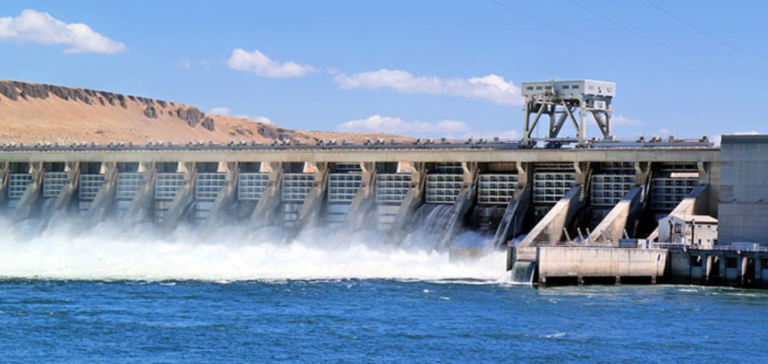The recent announcement of $9.5 million in funding from the U.S. Department of Energy’s Water and Power Technology Office (WPTO) marks an important milestone in the development of hydropower. The aim of this funding is to increase the flexibility of hydroelectricity, enabling better management of the variability of energy sources such as wind and solar power in the power system.
Impact of Hydropower on the U.S. Power Grid
Hydropower currently accounts for 28.7% of total renewable electricity generation in the United States, and around 6.2% of the country’s total electricity production. What’s more, its ability to supply electricity immediately or store it to meet demand in real time is a major asset. The increase in this capacity, thanks to this investment, reinforces the role of hydropower in supporting a power grid that integrates an increasing amount of variable renewable energy resources, thus contributing to the United States’ clean energy objectives.
Details of Financing and Project Areas
The funding will support projects in three main areas. The U.S. Department of Energy will allocate up to $4 million to projects that demonstrate hybrid hydropower configurations, such as a hydropower facility combined with another type of generation or an energy storage resource. It will also devote an equivalent sum to projects aimed at advancing technological innovations to improve the flexible capabilities of the US hydroelectric fleet. Finally, the department will allocate up to $1.5 million to projects that quantify the flexible capabilities of hydropower and develop operational strategies to increase this flexibility, with the aim of better serving an evolving power grid.
Synergies and Innovative Technologies in Hydropower
Between four and seven awards are planned as part of the funding opportunity to increase hydropower flexibility. Individual awards will range from $750,000 to $4 million. The Hybrid Hydropower Demonstration area will support demonstrations of hybridized hydropower operations, where hydropower is co-located and co-operated with at least one other non-hydropower generation or storage resource. This area is driven by industry insights and previous research suggesting that synergies between the characteristics of hydropower and other resources can expand capabilities to deliver improved grid services, reduce machine wear and tear, and mitigate environmental impacts.
Strategies for increasing operational flexibility
The area, Technologies for Increasing Flexibility, will support the testing of advanced hydroelectric components, tackling constraints at the component level of a hydroelectric installation. Driven by industry discussions and targeted technical workshops with manufacturers, this area builds on previous research to de-risk promising new technologies so that they can progress towards widespread deployment.
The Operational Flexibility domain develops operational strategies, model enhancements and related tools that enable individual facilities or coordinated sets of facilities (for example, in cascading river systems) to increase their net flexibility. However, informed by previous research by academics, national laboratories and other research organizations, this area will target projects that advance the state of the art while pursuing the incorporation of these advances into actual industry operational practice.
Deadlines and Procedures for Project Proposals
Applicants must submit their concept proposals by 5 p.m. ET on January 18, 2024 to be eligible to submit a full application. The deadline for responses to reviewers’ comments is May 23, 2024. The expected date for DOE selection notifications is August 2024, and the expected timeframe for award negotiations is August to November 2024.
This financing initiative represents a significant step towards the smoother integration of renewable energies into the US power grid. By enhancing the flexibility of hydropower, this project not only supports the country’s clean energy goals, but also paves the way for technological and operational innovations that could redefine the future of renewable energy.






















